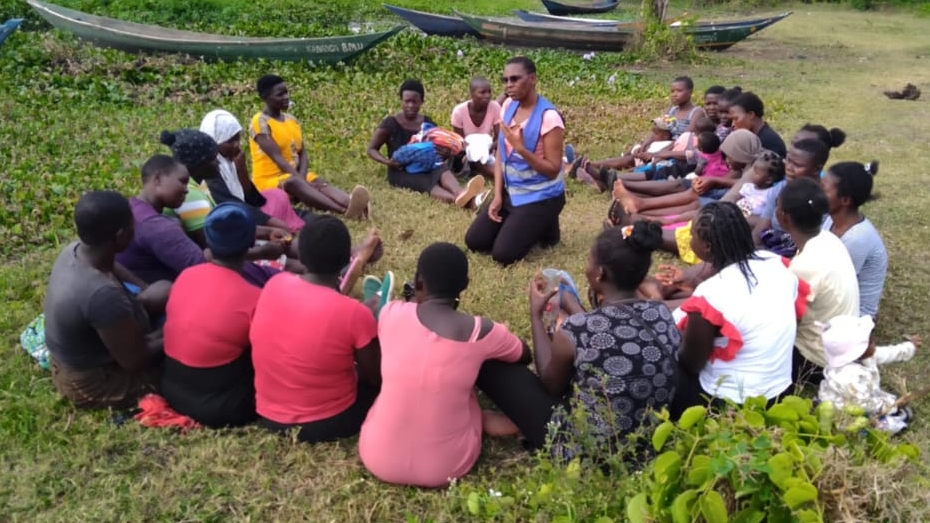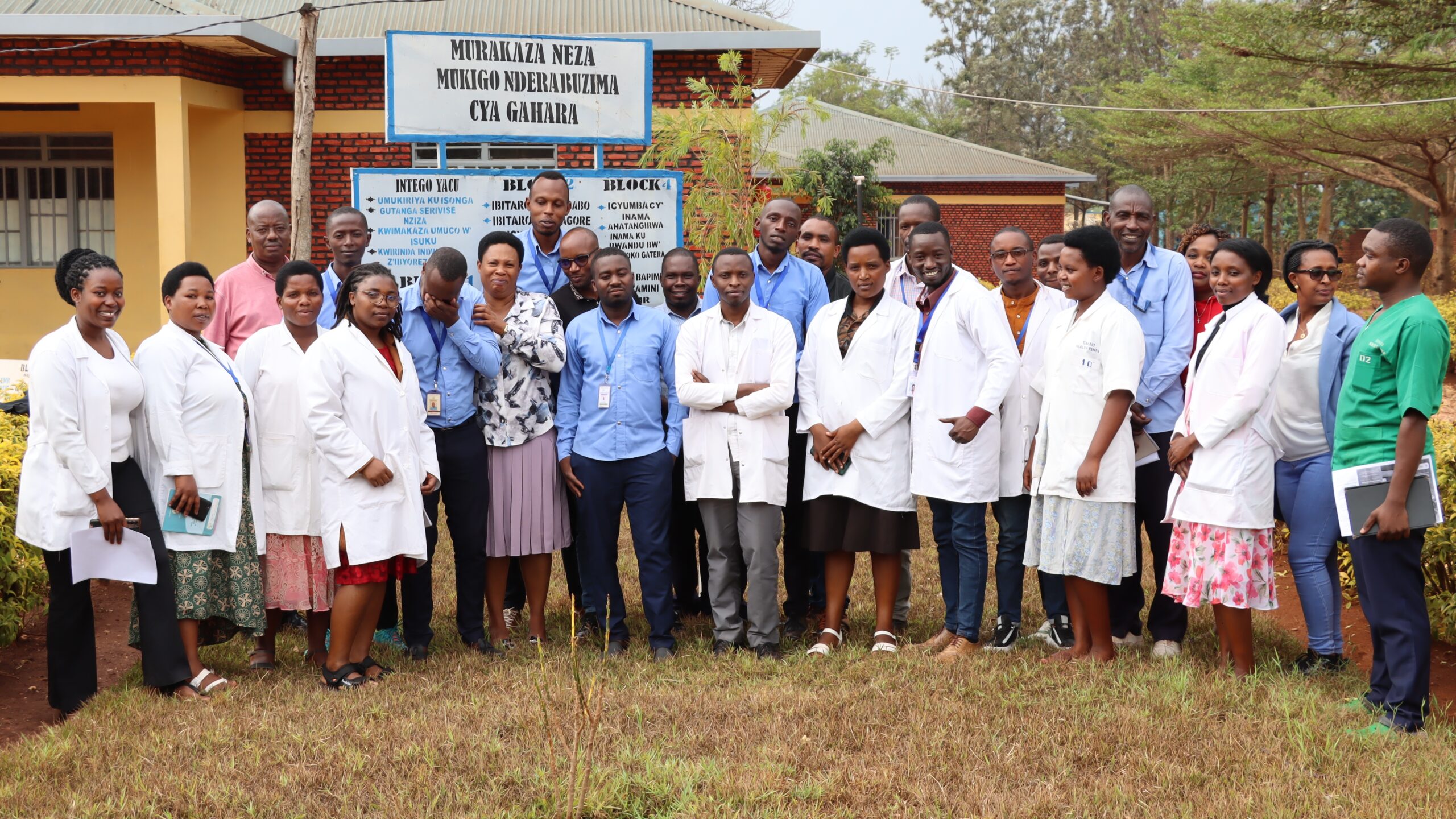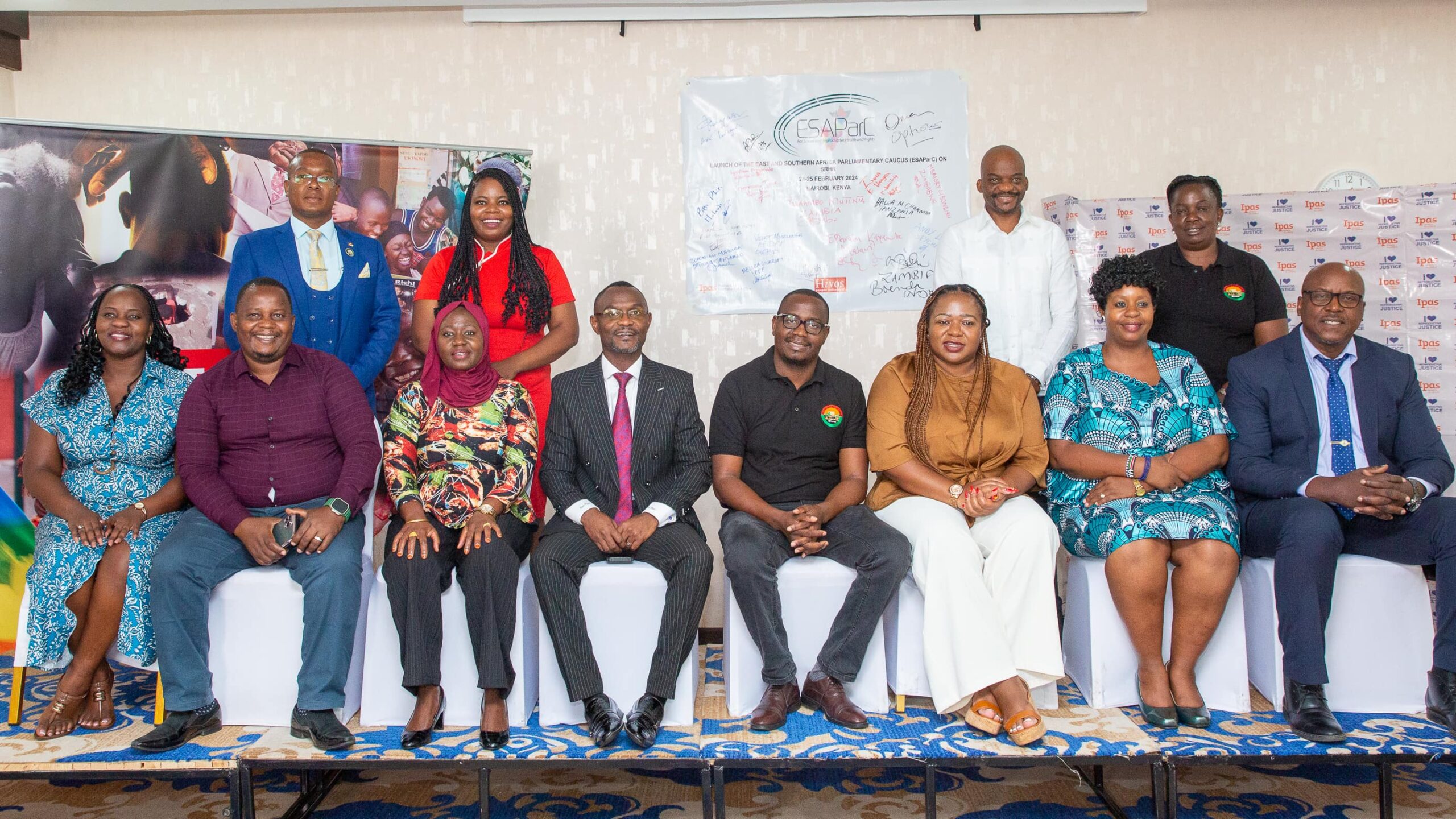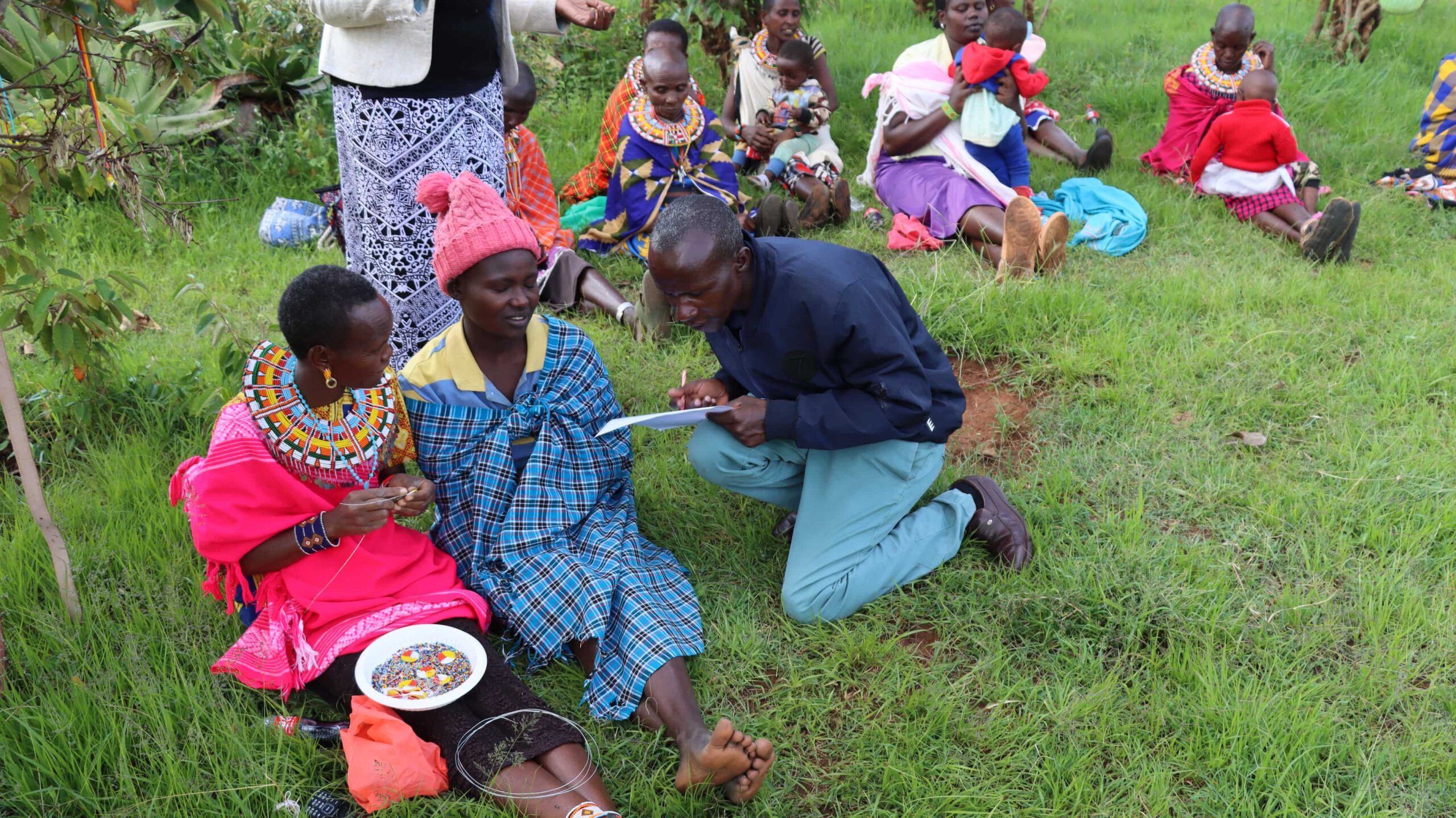- Leadership and governance
- Service delivery
- Financing
- Health Workforce
- Commodities
- Health Information Systems
At the national and county/district health departments, we focus on conducting Sustainable Abortion Ecosystem dialogues at both national and regional levels. We play a key role in developing, reviewing, and disseminating crucial policies and guidelines, such as Kenya’s national post-abortion care (PAC) standards and guidelines, and its costed implementation plan. Our efforts include the review of Kenya’s national Adolescent Sexual and Reproductive Health (ASRH) and Reproductive Health (RH) policies, as well as the national abortion care standards and guidelines in Kenya and Uganda (now withdrawn). Additionally, we disseminate Tanzania’s PAC policy, standards, and guidelines in two regions and in Zanzibar. To ensure government ownership, we provide regular support supervision for comprehensive abortion care (CAC) services.
Additionally, we support regular data monitoring and review meetings at both facility and county levels. These meetings provide a platform for healthcare providers and administrators to analyze data, identify trends, and address any issues related to service delivery. By fostering a culture of data use, we empower health facilities to make informed decisions that enhance the quality of care provided to patients. Our comprehensive approach ensures that health facilities are well-equipped to manage data effectively, ultimately contributing to improved health outcomes at the community and national levels.
Resources
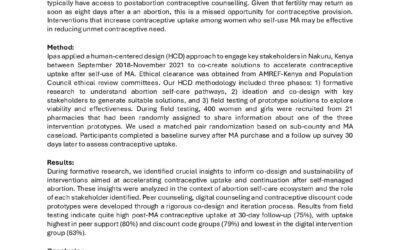
Globally, provision of post-abortion contraception is recognized as a high impact intervention that reduces rates of unintended pregnancy and unsafe abortion. Although abortion self-care — abortion with pills obtained without a prescription — is on the rise due to increased availability of safe and highly effective drugs, women accessing medical abortion (MA) outside the health system do not typically have access to post-abortion contraceptive counseling.
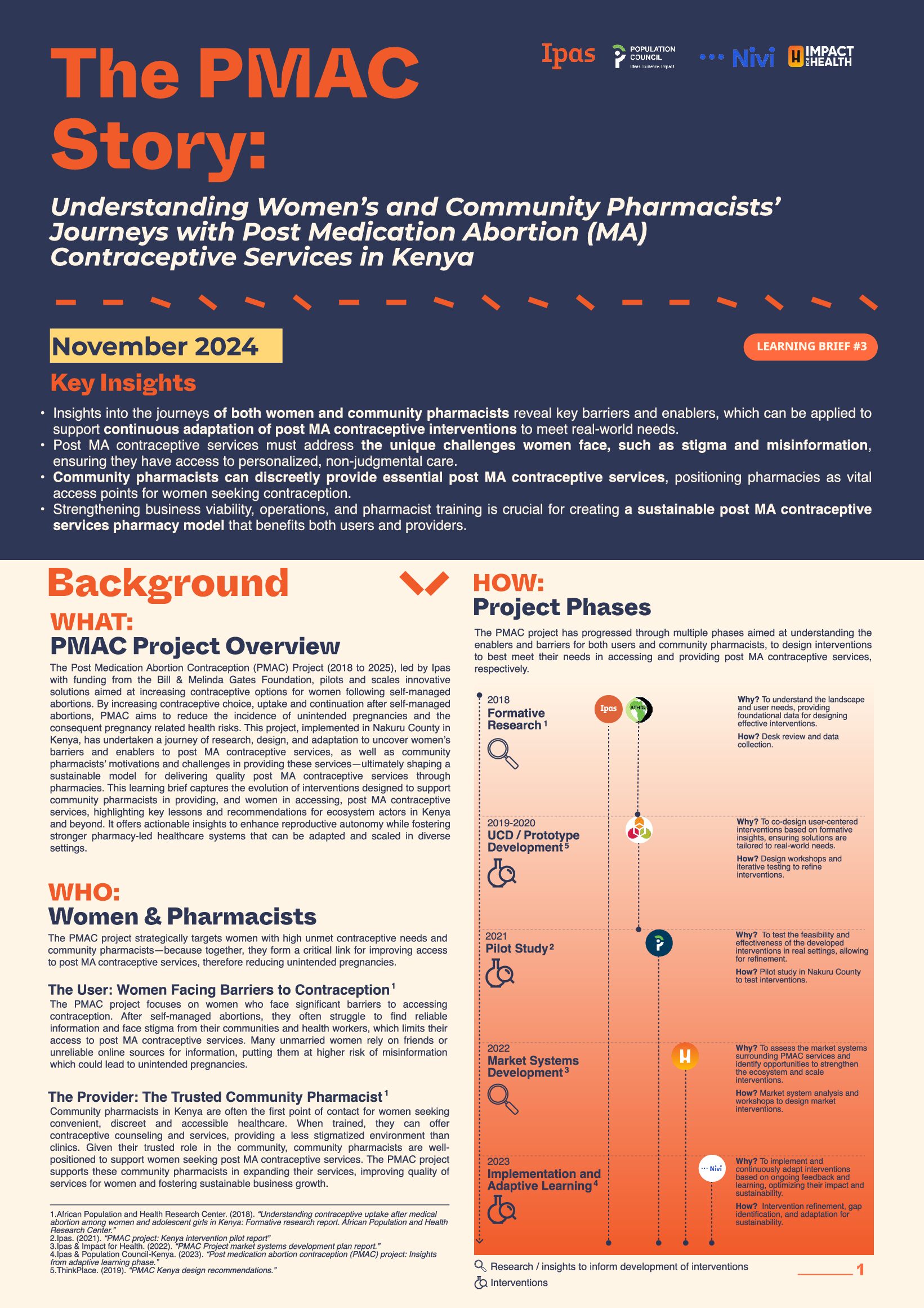
These learning briefs – a project anchor brief, a user-focused brief, and a pharmacist-focused brief – summarize lessons learned by the PMAC project during multiple phases of the project. Together, our project’s journey to finding scalable and sustainable solutions to increase uptake and continuation of post-MA contraception, and women’s and pharmacists’ journey’s to seeking and providing post-MA contraception, provide a promising road to ensuring access to care for women and sustainable business models for pharmacists.
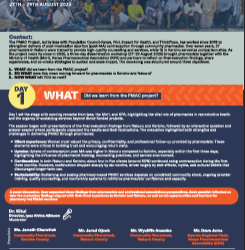
The PMAC Project, led by Ipas with Population Council-Kenya, Nivi, Impact for Health, and ThinkPlace, has worked since 2018 to strengthen delivery of post-medication abortion (post-MA) contraception through community pharmacies. Over seven years, 27 pharmacists in Nakuru were trained to provide high-quality counselling and services, while 15 in Kericho served as comparison sites. As the project nears its close in 2025, a three-day dissemination workshop (27–29 August 2025) brought pharmacists together with the Ministry of Health (MoH), Kenya Pharmaceutical Association (KPA) and partners to reflect on final evaluation findings, share experiences, and co-create strategies to sustain and scale impact.
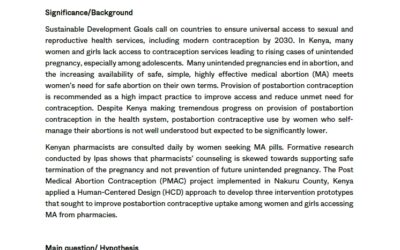
Sustainable Development Goals call on countries to ensure universal access to sexual and reproductive health services, including modern contraception by 2030. In Kenya, many women and girls lack access to contraception services leading to rising cases of unintended pregnancy, especially among adolescents.
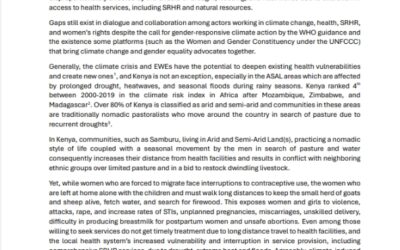
The biggest global threat of the 21st Century is climate crisis, including associated climate-induced extreme weather events. Women and girls living in Arid and Semi-Arid Lands (ASAL) are especially disproportionately affected by the effects of drought, flooding, and heat waves due to alteration in access to health services, including SRHR and natural resources.
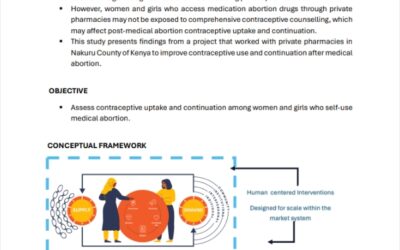
This study presents findings from a project that worked with private pharmacies in Nakuru County of Kenya to improve contraceptive use and continuation after medical abortion.
News
In March 2025, a broad spectrum of key stakeholders gathered in Mogadishu, Somalia, to discuss how to build a sustainable ecosystem for maternal and reproductive health care. A strategic roadmap emerged from the multi-day event, along with a shared commitment by stakeholders to implement the plan and transform the country’s maternal and reproductive health landscape.
Adolescents in Kenya stand at a critical crossroads, facing what has been aptly termed the “triple threat”: new HIV infections, sexual and gender-based violence (SGBV), and teenage pregnancies. Each of these challenges alone poses a significant barrier to the health, safety, and potential of young people. Together, their intersection creates a dangerous web of vulnerabilities that threaten to derail an entire generation.
Period poverty remains a pressing challenge in Kenya, disproportionately affecting teenage girls in rural areas. According to research by the Ministry of Health, 54% of Kenyan girls face challenges accessing menstrual health management (MHM) products, and 65% still lack sustainable access to safe menstrual products. This crisis derails their education, exposes them to early marriages, and perpetuates the cycle of poverty.
In the heart of Kenya, from the bustling urban center of Kiambu to the rural landscapes of Kakamega, a quiet revolution in the delivery of medical abortion services (also known as abortion with pills) is taking place through the Medical Abortion Self Use (MASU) project.
In Uganda, as in many developing countries across Africa, low utilisation of modern contraceptives among young people has been attributed to a variety of factors. These include limited access to contraceptive services, negative perceptions, and concerns about side effects.
As Gen Zs across the country were mobilising themselves on social media to push for reforms in government, another set of youth in Homa Bay was using the same platform to advocate for their sexual and reproductive rights (SRHR).
Homa Bay County is experiencing a condom shortage as organisations advocating for sexual and reproductive health rights urge prompt action to stop the spread of HIV infections.
Read about the alarmingly high rates of teenage pregnancies and C-section, as well as HIV infections and gender violence in Homa Bay County.
The government has moved to enforce the ban on services offered by the Traditional Birth Attendants (TBAs) across Uganda.
After being ranked as one of the top counties where the triple threat of an upsurge in gender based violence, teen pregnancies and increased cases of HIV infections, the fight against the menace has received a boost after Ipas stepped in to provide funding to help curb the situation.
According to the report, there is limited knowledge and empowerment on opportunities for women. This casts doubt on the quality and effectiveness of voter education conducted in the county.




